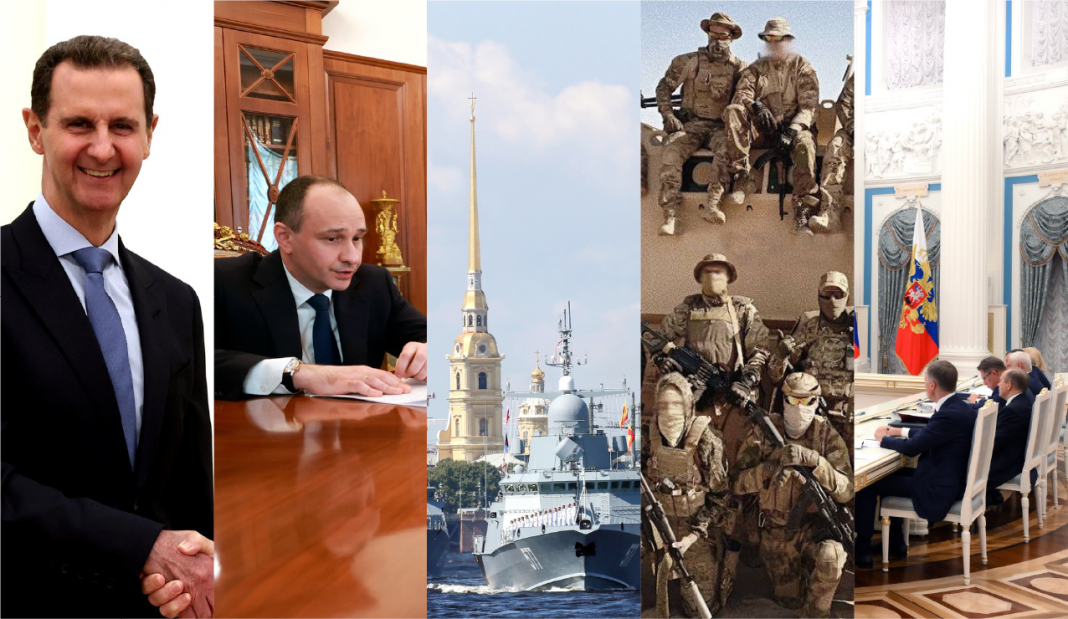This report presents key developments that have had an important impact on political, economic and social processes within Russia.
Based on the results of the past week, the following trends can be summarised:
- Most likely, we should expect that in the near future Putin will propose measures to save resources and money to Russians. This was the case in the 1970s and early 1980s, when Leonid Brezhnev, facing problems for the Soviet economy for the first time, put forward the slogan “The economy must be frugal”. Without denying this slogan (as well as Putin’s correct theses), it should be noted that when the government starts talking about economy at the national level, it is always a harbinger of crisis in the country.
- The next meeting between Putin and Lukashenko is the most classified, but Ascolt’s sources claim that Putin was interested in two issues: first, the results of joint Belarusian-Chinese military exercises (as well as the state of relations between Belarus and China in general), and second, the ability of Belarusian diplomats (through informal ties with the Vatican and Washington) to resolve a number of important issues. In essence, it is about unifying the capabilities of Belarusian and Russian diplomacy.
- While Russia used to be more of a statistic in the processes that took place in the Far East and Southeast Asia, now the emphasis is shifting and Russia is trying to become a full-fledged partner of China in political games in the region. In the near future, we will be able to see a more active presence of Russia in this area. Laos has traditionally been closely associated with the USSR and later with Russia, at least since the 1960s. Most likely, we should expect Russia to offer Laos a number of joint projects in the near future, including the traditional “rolled-out” scheme of building a nuclear power plant (Laos already produces a large amount of electricity, which is mainly exported, which has allowed Laos to earn the informal nickname “ASEAN’s Battery”).
This digest examines the issues that were most relevant to Russia in the period from 22 to 28 July:
- Vladimir Putin meets with Chairman of the Accounts Chamber Boris Kovalchuk
- Meeting on the socio-economic development of the temporarily occupied territories of Ukraine
- Syrian President Bashar al-Assad’s visit to Moscow
- Vladimir Putin and Alexander Lukashenko’s trip to Valaam
- The main naval parade
- Sergey Lavrov’s visit to Laos
- The situation with the Wagner PMC in Mali
This Content Is Only For Subscribers
- Vladimir Putin meets with Chairman of the Accounts Chamber Boris Kovalchuk
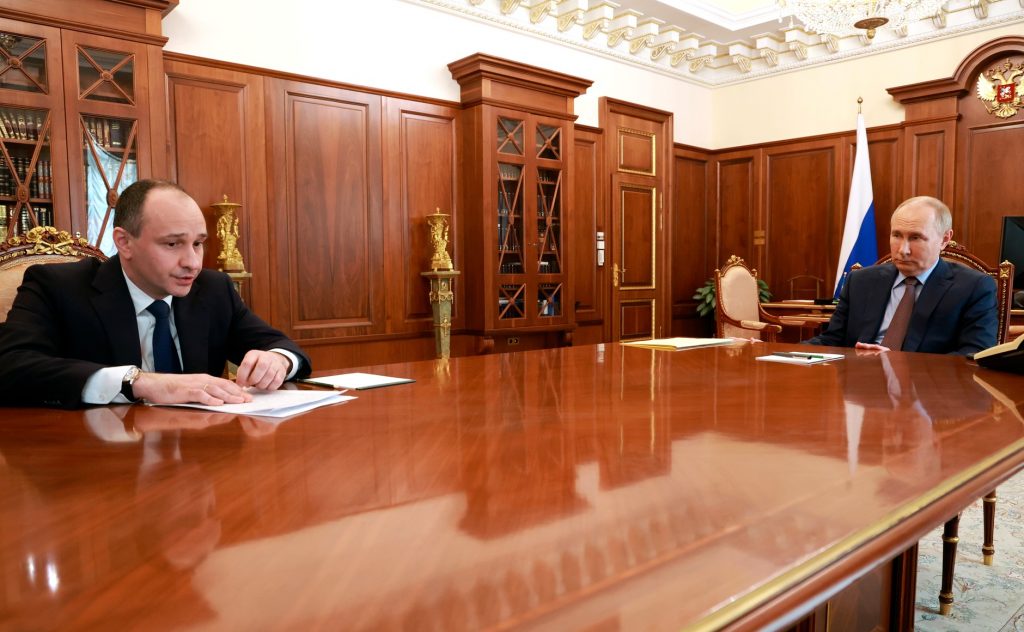
On Tuesday, 23 July, Vladimir Putin held a working meeting in the Kremlin with the Chairman of the Accounts Chamber, Boris Kovalchuk. The official reason for the meeting was a report on the results of the Accounts Chamber’s activities over the past year. Kovalchuk has been in office for two months.
Key theses:
- Putin: “According to the documents, I see that there were violations worth more than two trillion rubles, but a significant part of them, more than 70 per cent – 74 per cent – were violations of budget accounting records. But most importantly, how much did you, the Accounting Chamber, manage to return to the budget last year?”
- Kovalchuk: “Last year, we refunded more than 26 billion rubles. The key measures within this work were related to the refund of 12.3 billion rubles, which was due to the unjustified application of a reduced VAT rate. RUB 7.7 billion was recovered from licence fees not included in the customs value of goods, and RUB 2.9 billion was recovered from our audits of procurement and production sharing agreements. And as part of the defence national security audit, we secured a return of 1.3 billion rubles to the budget.”
- Kovalchuk: “As the most financially significant issue that was resolved as part of our recommendations in the reporting year, I will give an example: the change in the coefficient that is taken into account when determining the initial price of a crab auction – from 0.25 to 0.6. In the reporting year alone, this brought an additional RUB 119 billion to the budget.”
- Kovalchuk: “Also, out of the 332 events we conducted, 223 were budget audits related to the analysis of the projections of the federal budget and state extra-budgetary funds and reports on their implementation. In this regard, I would like to report that we have completed the work on issuing conclusions on the report on the implementation of the federal budget for 2023 and have recorded a number of positive aspects.”
- Kovalchuk: “In general, noting the high level of implementation of state programmes – at 98.5 per cent, which is higher than in 2022, we draw attention to the fact that to some extent this was achieved by adjusting a number of indicators during the year.”
- Putin: “Yes, our budget revenues are growing, and the deficit is minimal, non-oil and gas revenues are performing well, oil and gas revenues are growing, but we don’t have extra money. Therefore, I am counting on you to monitor financial discipline with the utmost care, and especially not to miss anything that is called a crime. We have a direct line of communication – in the most urgent cases, pick up the phone and call me without any hesitation.”
Results/forecasts:
Vladimir Putin is demonstrating not only the role of the Accounts Chamber in the Russian governance system (he has always demonstrated this, especially when Alexei Kudrin was the head of the Chamber). He is also showing the political weight of Boris Kovalchuk (and, at the same time, the entire Kovalchuk clan and the associated functionary of the Presidential Administration, Sergei Kiriyenko), and a special approach to filling the budget. The emphasis on fighting corruption and the gradual increase in non-oil and gas revenues to the budget should show that Putin intends to continue developing these areas. However, Putin failed to hide the fact that there are problems in this area.
Most likely, we should expect that in the near future Putin will propose measures to save resources and money to Russians. This was the case in the 1970s and early 1980s, when Leonid Brezhnev, facing problems for the Soviet economy for the first time, put forward the slogan “The economy must be frugal”. Without denying this slogan (as well as Putin’s correct theses), it should be noted that when the government starts talking about economy at the national level, it is always a harbinger of crisis in the country.
- Meeting on the socio-economic development of the temporarily occupied territories of Ukraine
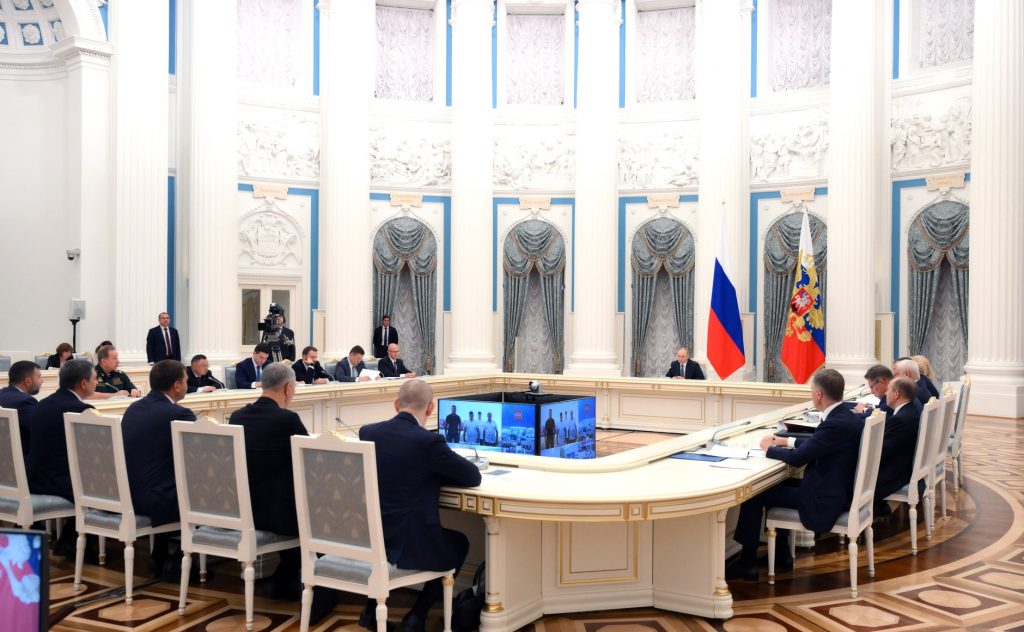
On Wednesday, 24 July, Vladimir Putin held a meeting on the socio-economic development of the [temporarily occupied territories of Ukraine] “new subjects of the Russian Federation” – the self-proclaimed LDPR, as well as the temporarily occupied parts of Zaporizhzhia and Kherson regions.
According to available information, the meeting was organised by the First Deputy Head of the Presidential Administration, Serhiy Kirienok. Notably, in addition to members of the Russian government and the ‘heads’ of the self-proclaimed republics, the meeting was also attended by the head of the Presidential Office for Internal Policy, Andrei Yarin. The meeting was also attended by Viktor Zolotov, Director of the Federal Service of the National Guard, Alexander Bortnikov, Director of the Federal Security Service, and Maksim Oreshki, Deputy Head of the Presidential Administration.
Key theses:
- Putin: “It is extremely important that the residents of the Donbass and Novorossiya regions have decent living and working conditions right now, so that people see prospects for themselves and their children in the future. This means that, along with addressing the security priority – which is, of course, the number one priority – it is necessary to repair housing, build modern buildings, social and transport facilities at an accelerated pace.”
- Putin “Federal customers have completed work on 11,262 facilities, including 62 apartment buildings, two thousand apartment buildings, and 321 educational, healthcare, cultural, sports, and other facilities. Over three thousand kilometres of roads have been overhauled – I’ve already talked about housing, now about roads. More than 500 bank branches and offices have been opened, which is extremely important for both citizens and the economy as a whole.”
Results/forecasts:
Putin is increasingly holding demonstrative meetings and conferences dedicated to the development of the occupied territories. In this way, he is making it clear that Russia views these territories as an integral part of the Russian Federation and is not going to make any concessions in future negotiations. It is important for him to show that Donbas, Zaporizhzhia and Kherson regions have already been included in a single state plan and in the system of governance relations.
In essence, this is an attempt not only to publicly demonstrate and record the negotiating position, but also to further legalise it in the eyes of the general public.
- Syrian President Bashar al-Assad’s visit to Moscow
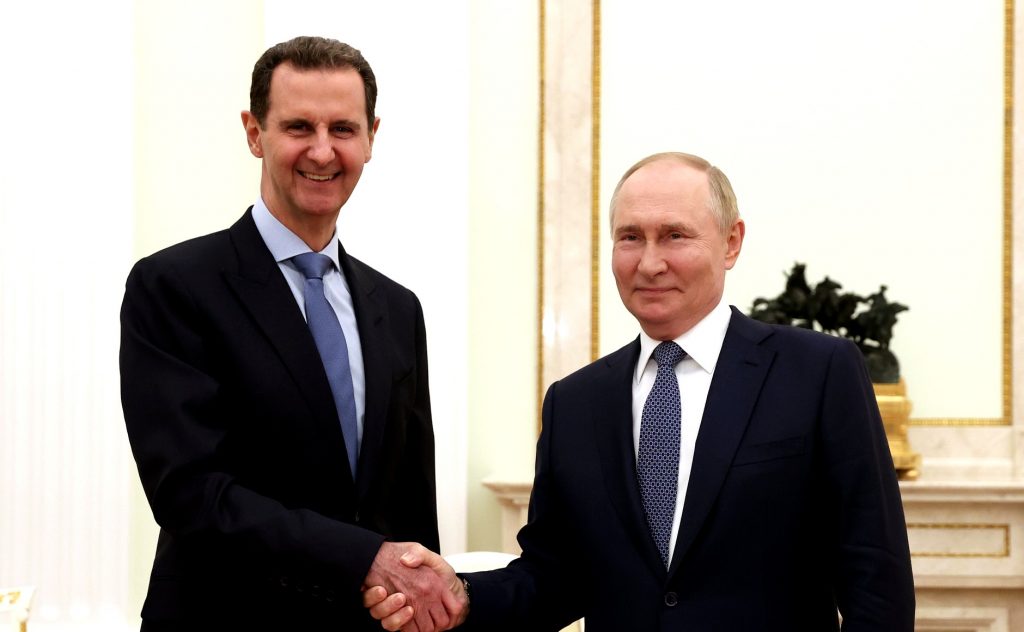
On Wednesday, 24 July, Syrian President Bashar al-Assad arrived in Moscow for a working visit. The same evening, the Kremlin hosted talks between Assad and Putin. It is noteworthy that the parties did not issue any joint statements following the talks. The Kremlin press service also said virtually nothing about the outcome of the meeting. However, according to official statements, the parties discussed the situation in the Middle East region, as well as trade and economic relations between the two countries.
Key theses:
- Putin: “We have an opportunity to talk about the whole range of our relations, we have not seen each other for a long time. Of course, I am very interested in your opinion on how the situation in the region is developing in general. Unfortunately, it tends to get worse, we can see that. This applies directly to Syria as well.”
- Assad: “Today’s visit coincides with the anniversary of the establishment of diplomatic relations between our countries. During the past decades, our countries have undergone very difficult challenges. And of course, these decades have witnessed complex transformation processes within our countries. However, over all these decades, relations between our countries have maintained their level of trust, and this is an indicator of the maturity of our peoples.”
- Assad: “Given all the events that are taking place today in the world and in the Eurasian region as a whole, our meeting today seems very important to discuss all the details of the development of these events, to discuss possible prospects and scenarios.”
Results/forecasts:
Bashar al-Assad arrived in Moscow against the backdrop of new threats to his regime. Firstly, with the change of power in Iran, pro-Iranian forces that have played an important role in ensuring Assad’s success may weaken their support for his regime, forcing Syria to ask Russia to increase its presence in the region (possibly at the level of deploying new PMCs). Second, pro-American and pro-British forces have become more active in the region. Third, there is a threat of Israeli strikes on Syria (which could escalate into a new round of war: according to Western analysts, Israel is unlikely to launch effective military operations in Libya in the near future, but this does not mean that it will not take certain measures towards a weaker Syria. Fourth, Turkey’s position on northern Syria remains unclear. All of these issues, as well as the issue of food and financial aid to Syria, are the most important in Assad’s negotiations with Putin. We will only know the results of these negotiations after specific events.
- Vladimir Putin and Alexander Lukashenko’s trip to Valaam
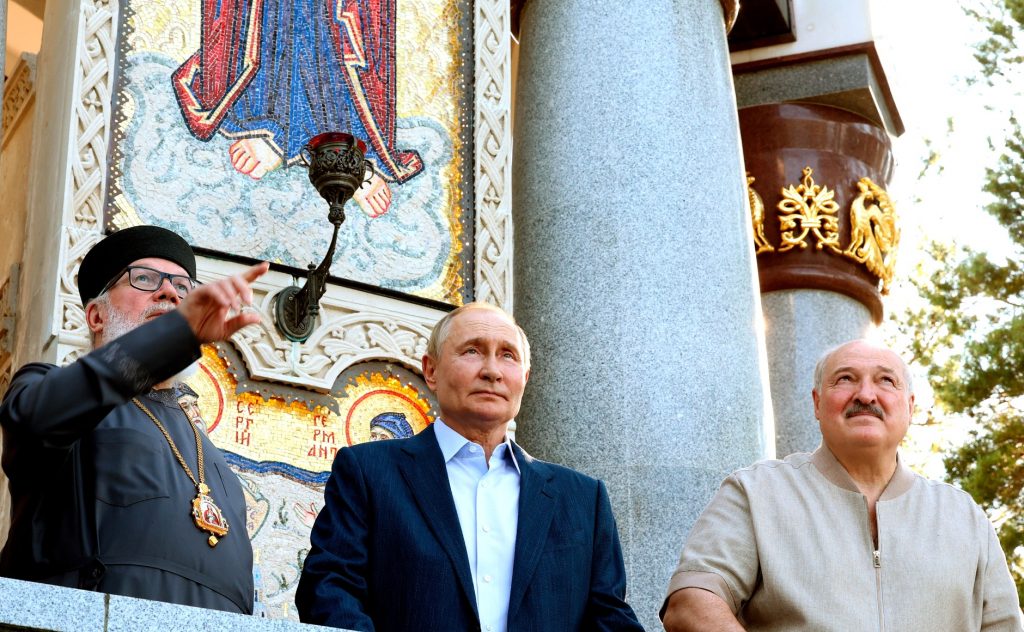
On Friday, 26 July, Vladimir Putin and Alexander Lukashenko visited the Transfiguration of the Saviour Valaam Stavropegic Monastery, located on Svetly Island in the Republic of Karelia. It is noted that the leaders of the two countries also held an informal conversation, the details of which have not been officially commented on.
The day before, the two leaders attended a service at the Church of the Smolensk Icon of the Mother of God in the Smolensk Skete. In addition, Putin and Lukashenko visited the chapel of the Royal Passionists in the monastery courtyard.
Results/forecasts:
The next meeting between Putin and Lukashenko is the most classified, but Ascolt’s sources claim that Putin was interested in two issues: first, the results of joint Belarusian-Chinese military exercises (as well as the state of relations between Belarus and China in general), and second, the ability of Belarusian diplomats (through informal ties with the Vatican and Washington) to resolve a number of important issues. In essence, it is about unifying the capabilities of Belarusian and Russian diplomacy.
- The main naval parade
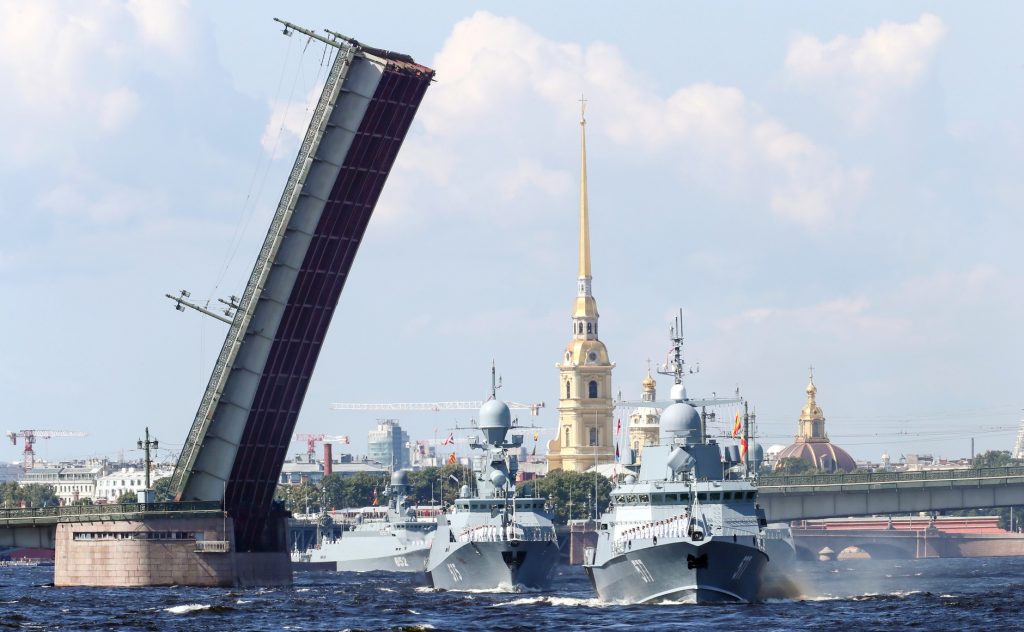
On Sunday, 28 July, Vladimir Putin hosted the Main Naval Parade in St. Petersburg, which was held in honour of the Russian Navy Day. This holiday is traditionally celebrated on the last Sunday of July and is an important political event for the Kremlin. It is noted that 20 surface ships and boats, one submarine, four sailing vessels, and more than 2,500 military personnel were involved in the 2024 parade. The Russian president also delivered a traditional address to the parade participants.
Key theses:
- “We always celebrate this holiday solemnly, with respect and love for the glorious fleet, with pride in our country, a maritime power. Russia has gained this most important status due to its geopolitical position, great geographical discoveries and enormous contribution to the exploration of the world’s oceans, but most importantly, due to the victories, work, will, courage and talent of our naval commanders and military sailors.”
- “Gaining strength, it was the fleet that became an important pillar for the reformist tsar in the creation of the Russian Empire – strong, independent, sovereign – and for centuries retained its importance for the country’s defence capability, in achieving its military, industrial, technological and scientific triumphs, in developing and strengthening good, partnership relations with other states.”
- “The high mission of the Navy has defined their truly sacred attitude to the Motherland, their selflessness and unwavering character, loyalty to the oath, their word and the brotherhood of the sea, their unwavering fortitude, discipline and training.”
- “Cultivating these qualities is one of the most important tasks of national naval education. Starting with the Peter the Great School of Navigation and Mathematical Sciences, it is still among the best, most fundamental and progressive, multiplying rich traditions, training first-class specialists with extensive advanced knowledge and, most importantly, capable of effectively applying it in the difficult, responsible naval service.”
- “The statement by the US administration and the German government about plans to deploy US long-range precision missile systems in Germany from 2026 is noteworthy.”
- “Important Russian government and military facilities, our administrative and industrial centres, and defence infrastructure will be within its reach. And the flight time to targets on our territory of such missiles, which in the future may be equipped with nuclear warheads, will be about ten minutes.”
- “Earlier, during the exercises, the United States had already practised the deployment of Typhon missile systems from its territory to Denmark and the Philippines. This situation is reminiscent of the events of the Cold War, when the US deployed Pershing intermediate-range missiles in Europe.”
- “If the United States of America implements such plans, we will consider ourselves free from the previously undertaken unilateral moratorium on the deployment of medium- and shorter-range strike capabilities, including the enhancement of the capabilities of our Navy’s coastal forces.”
- “Our attention today is drawn to the growing tension on the part of Washington in connection with the flights of Russian strategic aviation. I would like to remind you in this regard that since the collapse of the Soviet Union, Russian strategic missile carriers have not conducted air patrols far from our borders. Russia believed at the time that there was no longer any need for this: the world had changed, the Cold War was over. However, the United States did not reciprocate this unilateral gesture of goodwill and continued to patrol near our borders.”
It is also noted that after the parade, Vladimir Putin met with representatives of foreign delegations participating in the celebration of the Navy Day in the building of the Main Admiralty: Algeria, Azerbaijan, Bahrain, Brazil, Cambodia, Cameroon, China, Cuba, Djibouti, Egypt, Guinea, India, Indonesia, Iran, Qatar, Kenya, Kenya, Libya, Morocco, Mozambique, Qatar, China, the Republic of Congo, Libya, Morocco, Venezuela, Vietnam, Vietnam, and Viet Nam, Myanmar, Namibia, UAE, Pakistan, Syria, Sri Lanka, Tanzania, South Africa, Cambodia, Cameroon, China, Cuba, the Republic of the Congo, Kenya, Libya, Morocco, Mozambique, Myanmar, Namibia, Qatar, South Africa, Sri Lanka, Syria, Tanzania, and the United Arab Emirates.
Results/forecasts:
Traditionally, Putin spends the Russian Navy Day in St Petersburg. While last year’s celebration was aimed at demonstrating Russia’s capabilities in the Baltic Sea, this year Putin decided to show support from a number of countries (most notably, ships from India and China took part in the celebration). One can hardly say that Putin has demonstrated the creation of a new military and political alliance – as opposed to NATO. But it is safe to say that this event is a demonstrative move to show the West that a large part of the world has a consolidated position and will not tolerate attempts to restore the monopoly world.
It is also important to note that last week, the media actively disseminated information about a phone call between the Russian and US defence ministers, during which Andrei Belousov warned his American counterpart about Kyiv’s alleged preparation of a terrorist attack on Russian territory. Several sources said that such a terrorist attack would have been aimed at the naval parade and could have had critical consequences for the Kremlin’s image. It is possible that in the near future the topic of “preventing a terrorist attack” will be actively developed in the Russian media.
- Sergey Lavrov’s visit to Laos
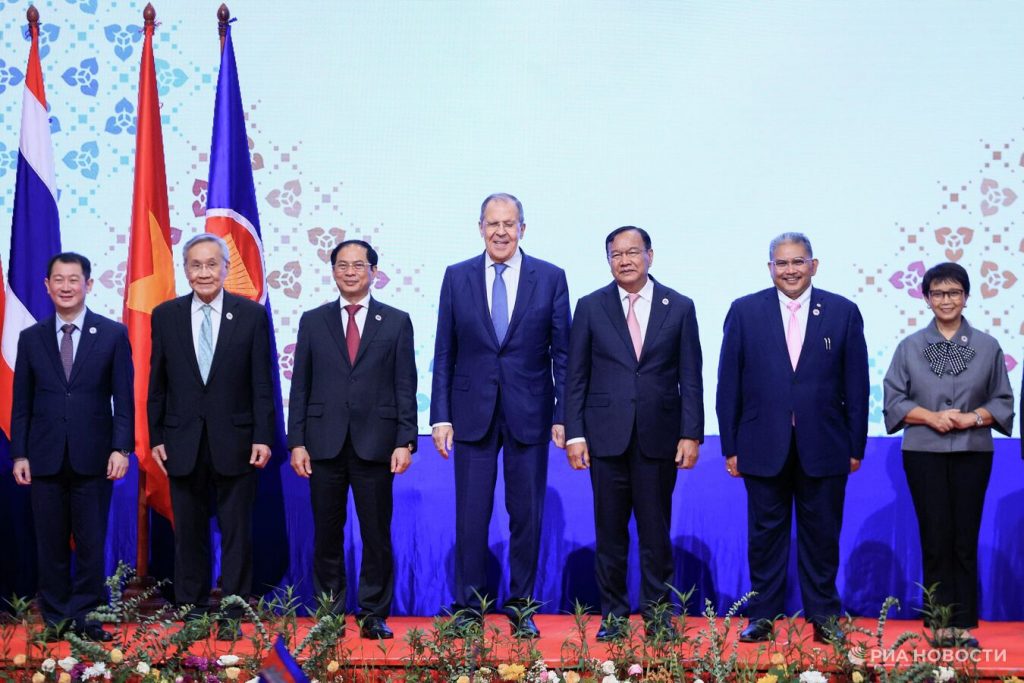
On Thursday, 25 July, Russian Foreign Minister Sergey Lavrov began a four-day visit to Laos, during which he attended the annual meeting of foreign ministers of the Association of Southeast Asian Nations (ASEAN). Lavrov also held a number of bilateral talks. This year marks the 20th anniversary of Russia’s accession to the Treaty of Friendship and Cooperation in Southeast Asia, one of the Association’s founding documents, which is designed to ensure peace and stability in the region.
It is noteworthy that at the same time, US Secretary of State Anthony Blinken arrived in Laos and held an official meeting with Chinese Foreign Minister Wang Yi. At the same time, there were no reports of Blinken’s meeting with Lavrov.
It is known that Sergei Lavrov met with the foreign ministers of China, East Timor, Indonesia, Cambodia, Brunei Darussalam and Laos. The Russian foreign minister also took part in a meeting of Russia-ASEAN foreign ministers, during which he delivered an opening speech.
Key theses:
- “I would like to take this opportunity to express my sincere gratitude to our Lao friends for their hospitality and excellent organisation of the event. Special words of gratitude go to Cambodia, which has been the coordinator of the Russia-ASEAN dialogue for the past three years, for its responsible approach to the performance of its duties. Now the baton is being passed to Myanmar. I would like to congratulate the representative of Nay Pyi Taw”.
- “It is gratifying that our dialogue partners and I have a similar vision of the parameters of the formation of a multipolar world order on the solid basis of the principles of the UN Charter and other norms of international law and the enhancement of the role of the Global South in multilateral structures in accordance with their real and rapidly growing weight in the global economy and politics.”
- “Moscow has consistently advocated strengthening the role of ASEAN in regional affairs. We are convinced that the ASEAN-centric architecture, based on inclusiveness and equality, consideration of the interests of all participants and respect for their identity, should remain the foundation for security and sustainable development in the Asia-Pacific region.”
- “For more than three decades, our relations have become truly comprehensive. We are working hard to deepen coordination in the areas of politics and security, as well as to counter modern challenges and threats. We see positive dynamics in practical areas, including the economy, energy, agriculture, and education. A significant event was Russia’s receipt of the ASEAN Digital Partner status this year. Initiatives are being successfully implemented in other areas, including the development of youth cooperation.”
Results/forecasts:
Lavrov’s visit is intended to demonstrate Russia’s intensified actions in the Pacific region. If earlier Russia was more of a statistic in the processes that took place in the Far East and Southeast Asia, now the emphasis is shifting and Russia is trying to become a full-fledged partner of China in political games in the region. In the near future, we will be able to see a more active presence of Russia in this area. Laos has traditionally been closely associated with the USSR and later with Russia, at least since the 1960s. The leaders of Laos are largely graduates of Russian and Soviet educational institutions (for example, the President of Laos, Thongloung Sisoulith, not only speaks Russian, but also graduated from the Philology Department of the Leningrad State Pedagogical Institute named after A.I. Herzen and defended his doctoral dissertation in Russian philology). Chinese and Vietnamese influences are also traditionally strong here. Laos supports most of Russia’s initiatives at the international level. Most likely, we should expect Russia to offer Laos a number of joint projects in the near future, including the traditional “rolled out” scheme – the construction of a nuclear power plant (Laos already produces a large amount of electricity, which is mainly exported, which has allowed Laos to earn the informal nickname “ASEAN Battery”). Russia may also be interested in placing a number of defence orders in Laos, especially in the north of the country, where there are problems with employment. Naturally, Russia cannot take such actions without coordination with China, which is now Laos’ main political and trade partner (58% of the 7 million people in the country import from China).
- The situation with the Wagner PMC in Mali
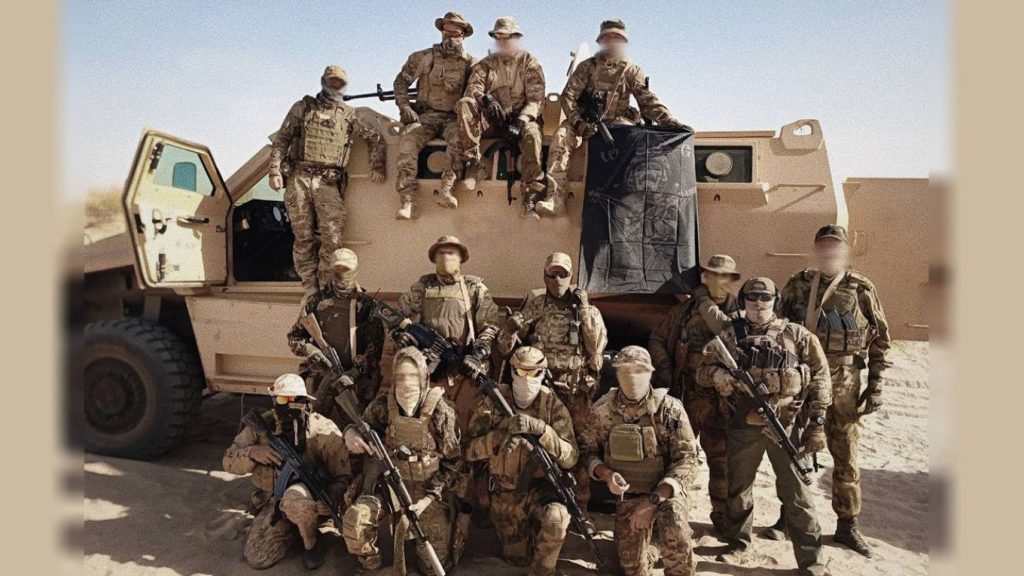
On Sunday, 28 July, the media reported that a convoy from the Wagner PMC was ambushed in Mali during a military operation on the border with Algeria. A number of sources also stated that several dozen PMC fighters were killed in the incident. It is reported that a convoy of Malian government troops, which was moving with the support of Wagner, was defeated by a Tuareg group fighting the country’s authorities.
At the same time, Tuareg representatives claim “many dozens” of dead and captured Wagnerites. Other sources put the figure at 50 dead Wagnerites. The published footage shows dozens of dead, including men of European appearance. A number of sources also stated that the death toll could be higher, as the PMC group involved in the clashes consisted of more than a hundred people.
It is noteworthy that some time after the information about the defeat of the Wagner PMC column appeared, information appeared on the network that Tuareg jihadists in Mali were ready to hand over the captured Wagnerians to Ukraine. The relevant post was made on the X network in Ukrainian, but its authenticity has not been established.
Results/forecasts:
This is not Wagner’s first serious defeat. However, it is not catastrophic, but rather situational and is unlikely to lead to a reduction in Wagner’s activities in the region. Most likely, the military leadership will decide on personnel reshuffles and additional manning of the PMC (especially since there has long been growing dissatisfaction among Wagner’s members with commander Anton Elizarov, call sign Lotus, who was considered too servile to the official Russian authorities). The fact that the defeat was inflicted by Tuareg forces associated with pro-jihadist groups in Mali turns the Wagnerites into a victim in the eyes of the West and will not allow the defeat to be fully turned into a disaster for Wagner. In addition, the current incident could lead to problems in relations between Russia and Algeria (which was previously considered almost an outpost of Russian interests in the Maghreb) – the Russian side has questions about the inaction of the Algerian authorities and why Tuareg radicals feel so free in southern Algeria.

